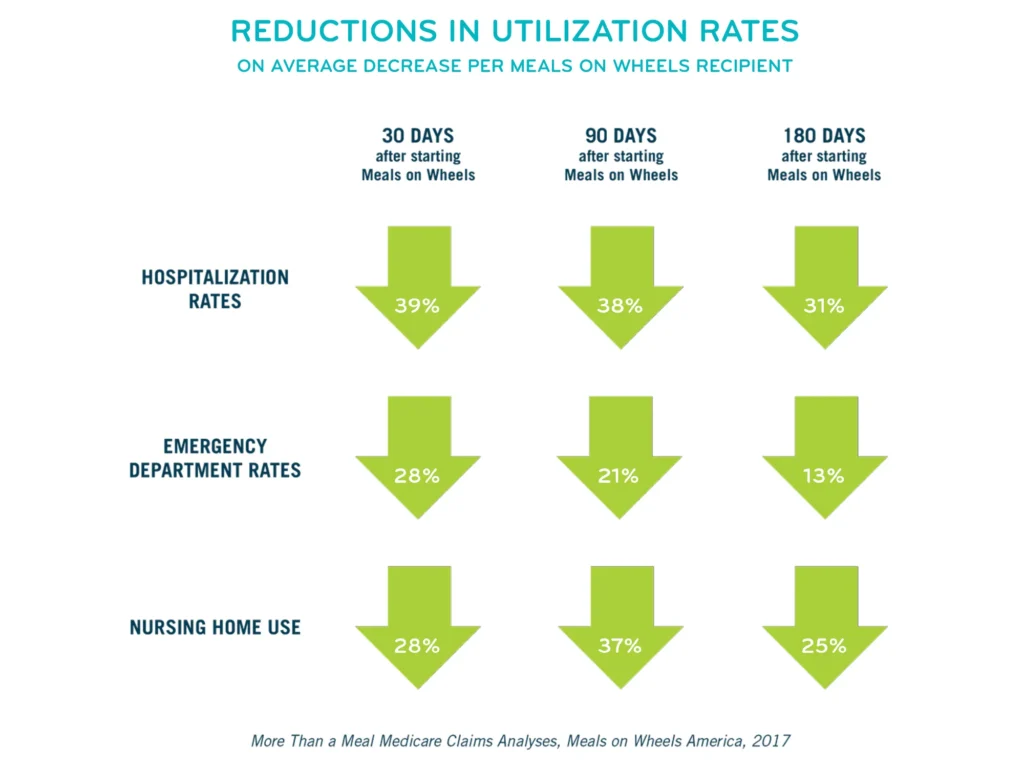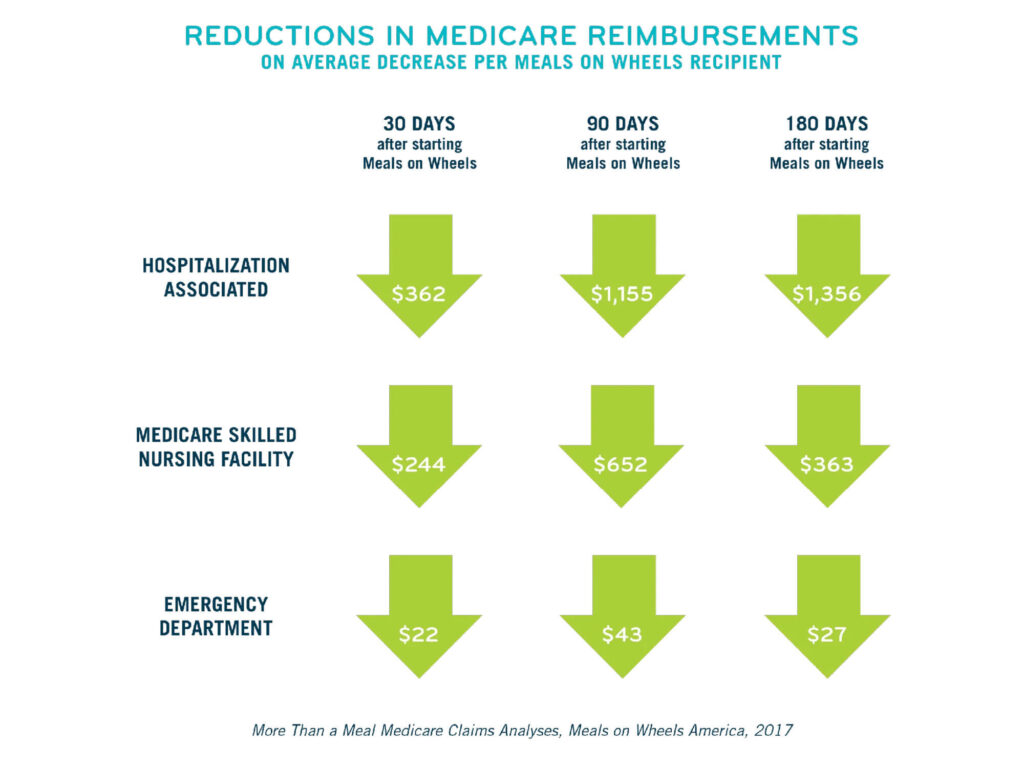Links & Downloads
The Medicare Claims Analyses, conducted by researchers at Brown University School of Public Health as part of our More Than a Meal® research project, was designed to help us better understand the impact of home-delivered meal services on overall health and well-being and associated use of high-cost health care services.
To achieve the project goal, records for more than 29,000 Medicare beneficiaries who received Meals on Wheels services between 2009 and 2014 were compiled from 13 Meals on Wheels providers across six states. The final analytic sample included approximately 14,000 Meals on Wheels/Medicare beneficiaries.

Two sets of analyses were conducted:
- Method 1 compared health care utilization and costs for Meals on Wheels participants prior to and following receipt of Meals on Wheels services over a 30-, 90- and 180-day period. Local and national organizations can use the positive findings from this analysis as part of demonstrating the evidence base for Meals on Wheels’ positive impact.
- Method 2 describes differences in health care utilization and costs between Meals on Wheels participants and a control group of Medicare enrollees who did not receive Meals on Wheels services. This analysis was not able to make conclusions about the impact of Meals on Wheels on participants’ health care utilization, for methodological reasons. However, researchers can use the data techniques from this analysis to benefit future Meals on Wheels studies.
Key Findings
Method 1
Findings suggest that Meals on Wheels recipients’ health care utilization and costs declined post-enrollment periods compared to the equivalent amount of time before enrollment. The study was not able to prove that Meals on Wheels was the reason for these positive outcomes. However, the findings are in line with other studies cited in The Case for Meals on Wheels.


Method 2
This analysis was not able to make conclusions about the impacts of Meals on Wheels services on participants’ rates of hospitalization or other outcomes. Comparing Meals on Wheels participants with a matched sample of Medicare enrollees who were not receiving Meals on Wheels, the Meals on Wheels participants had higher rates of health care utilization.
Possible explanations for these findings range from a need for short-term services for a highly vulnerable population that could level out and result in savings over time with continued delivery of Meals on Wheels services to the possibility that the data available in the Medicare Claims records may not have included all factors that could have resulted in some significant differences in those receiving services compared to those not receiving services.
Nonetheless, future studies can use the same techniques to link Meals on Wheels participant data to Medicare data to better understand the relationships among Meals on Wheels services, health status, health care use and benefits to participants’ well-being.

The combined findings from methods 1 and 2 add to our existing portfolio of research documenting the value of home-delivered meals services to participants’ health and well-being. Meals on Wheels America will continue to invest in building our knowledge base to better understand the relationship between Meals on Wheels services and health care utilization.
Download Full Report
In reproducing any excerpts of this report, please provide a credit that recognizes Meals on Wheels America, such as: Meals on Wheels America. (2017). More Than a Meal® Medicare Claims Analyses. https://www.mealsonwheelsamerica.org/research/medicare-claims-analyses/
External Publications
A New Data Resource to Examine Meals on Wheels Clients’ Health Care Utilization and Costs Shan, M., Gutman, R., Dosa, D., Gozalo, P. L., Ogarek, J. A., Kler, S., & Thomas, K. S., Medical Care, 2017.
Produced with generous support from


